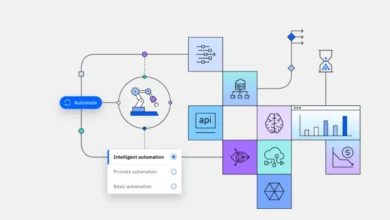AI for Smarter Game Development: Opportunities and Challenges

Artificial Intelligence (AI) in game development is an increasingly prominent and exciting field with vast potential for enhancing various aspects of game design, development processes, and, ultimately, player experiences. AI refers to machines’ simulation of human intelligence processes, enabling them to perform tasks that typically require human cognition, such as learning, problem-solving, and decision-making.
AI has gained significant traction in the gaming industry in recent years, offering game developers powerful tools and techniques to create more immersive and engaging experiences. From enhancing non-player character (NPC) behaviours and creating lifelike environments to optimizing game mechanics and personalizing player experiences, AI can transform every facet of game development.
One of the most compelling aspects of AI in game development is its potential to revolutionize game design. By leveraging AI algorithms and machine learning techniques, developers can automate certain aspects of the design process, such as generating procedural content, balancing game mechanics, and optimizing level layouts. This streamlines development workflow and creates dynamic and adaptive game worlds that respond intelligently to player actions.
Beyond game design, AI also has the potential to revolutionize development processes by automating repetitive tasks, optimizing resource allocation, and accelerating testing and debugging procedures. Many iGaming software providers leverage AI technologies to streamline development pipelines and deliver high-quality games more efficiently.
AI in Game Development
Today, AI plays a crucial role in game development, from character behaviours and procedural content generation to player analytics and adaptive difficulty systems. Modern games employ diverse AI techniques to enhance immersion, challenge, and player engagement.
One prominent application of AI in gaming is NPC behaviours and enemy AI. Games like “The Last of Us Part II” and “Red Dead Redemption 2” feature AI-driven characters with complex personalities, emotions, and decision-making capabilities, contributing to more lifelike and dynamic interactions. These NPCs can exhibit realistic behaviours, respond intelligently to the player’s actions, and adapt to changing game conditions, creating a sense of immersion and realism.
Furthermore, AI is increasingly used for procedural content generation, where algorithms dynamically generate game content based on predefined rules and parameters. Games like “No Man’s Sky” and “Minecraft” leverage procedural generation to create vast, procedurally generated worlds with infinite variation, offering players endless exploration and discovery opportunities.
Additionally, AI-powered analytics tools gather and analyze player data, allowing developers to gain insights into player behaviour, preferences, and engagement metrics. By understanding player preferences and habits, developers can tailor game experiences, optimize game balance, and deliver personalized content recommendations, enhancing player satisfaction and retention.
Overall, AI continues to push the boundaries of what is possible in game development, enabling developers to create more immersive, dynamic, and personalized gaming experiences. As technology advances, we can expect AI to play an increasingly integral role in shaping the future of gaming.
Opportunities for Game Development
AI presents a wealth of opportunities for game development, empowering developers to enhance creativity, improve efficiency, create dynamic gameplay experiences, and gain valuable insights for game improvement.
- Enhancing Creativity and Design: AI technology can be leveraged to generate various aspects of game content, such as levels, textures, and character stories. Through techniques like procedural generation and neural network algorithms, AI can rapidly generate diverse and immersive game worlds with minimal human intervention. By automating the creation of repetitive or time-consuming tasks, developers have more freedom to focus on refining their games’ artistic and narrative elements, fostering creativity and innovation.
- Improving Development Efficiency: AI streamlines game development processes by automating mundane tasks, such as testing, balancing, and bug fixing. Automated testing tools equipped with AI algorithms can simulate countless gameplay scenarios, identify bugs and performance issues, and provide actionable insights for optimization. This automation not only accelerates the development cycle but also improves the game’s overall quality by ensuring thorough testing and refinement.
- Creating Dynamic and Adaptive Gameplay: AI enables developers to create dynamic and adaptive gameplay experiences that respond intelligently to player actions and preferences. By implementing AI-driven adaptive difficulty systems, games can adjust the challenge level in real time based on the player’s skill level and performance, ensuring a tailored and engaging experience for every player. Additionally, AI-powered NPCs can exhibit lifelike behaviours, learning from player interactions and evolving their strategies over time, enhancing immersion and replayability.
- Data-Driven Insights for Game Improvement: AI analytics tools offer developers valuable insights into how players interact with their games, enabling data-driven decision-making for updates and improvements. By analyzing player behaviour, engagement metrics, and feedback, developers can identify patterns, trends, and areas for enhancement. This data-driven approach allows targeted updates, content additions, and gameplay refinements, ultimately leading to a more satisfying and enjoyable gaming experience for players.
In summary, AI opens up a world of possibilities for game development, from enhancing creativity and design to improving efficiency, creating dynamic gameplay, and leveraging data-driven insights for continuous improvement. By harnessing the power of AI technologies, developers can unlock new levels of innovation and deliver immersive, engaging, and memorable gaming experiences for players worldwide.
Challenges and Considerations
Implementing AI in game development presents several challenges and considerations that developers must navigate to harness its benefits effectively.
- Technical and Resource Challenges: Integrating AI into game development requires a significant investment in technical expertise and resources, which can pose challenges for smaller studios with limited budgets and workforce. They are developing AI algorithms and training models and optimizing performance demand, which demands specialized skills and infrastructure, making it inaccessible to some developers. Maintaining and updating AI systems over time requires ongoing resources and support, further exacerbating the technical and resource challenges.
- Ethical and Privacy Concerns: The use of AI in games raises ethical considerations surrounding data privacy, player surveillance, and the potential for creating addictive game mechanics. Collecting and analyzing player data to personalize experiences may raise concerns about privacy and consent. Moreover, AI-powered systems that track and analyze player behaviour can inadvertently infringe on player autonomy and manipulate player engagement. Developers must tread carefully to ensure that AI-driven features enhance player experiences without compromising ethical principles.
- Balancing AI and Human Creativity: There’s a delicate balance between leveraging AI to enhance game development processes and preserving the unique creative vision of human developers. While AI can automate tasks and generate content efficiently, there’s a risk of it overshadowing human creativity and leading to formulaic or uninspired game experiences. Developers must find ways to integrate AI seamlessly into their workflows while maintaining creative control and artistic integrity, ensuring that AI augments rather than replaces human creativity.
- Future-Proofing AI Integration: As AI technology advances rapidly, developers face the challenge of future-proofing AI integration to keep games relevant and engaging over time. The rapid evolution of AI algorithms and techniques necessitates ongoing adaptation and innovation to leverage the latest advancements effectively. Additionally, developers must anticipate and address potential ethical, legal, and societal implications of AI-driven games to ensure long-term sustainability and success in the ever-changing game development landscape.
In conclusion, while AI offers immense potential for enhancing game development, developers must overcome technical, ethical, creative, and future-proofing challenges to maximize its benefits responsibly. By addressing these considerations thoughtfully and proactively, developers can leverage AI to create innovative, engaging, and ethically sound gaming experiences for players worldwide.



